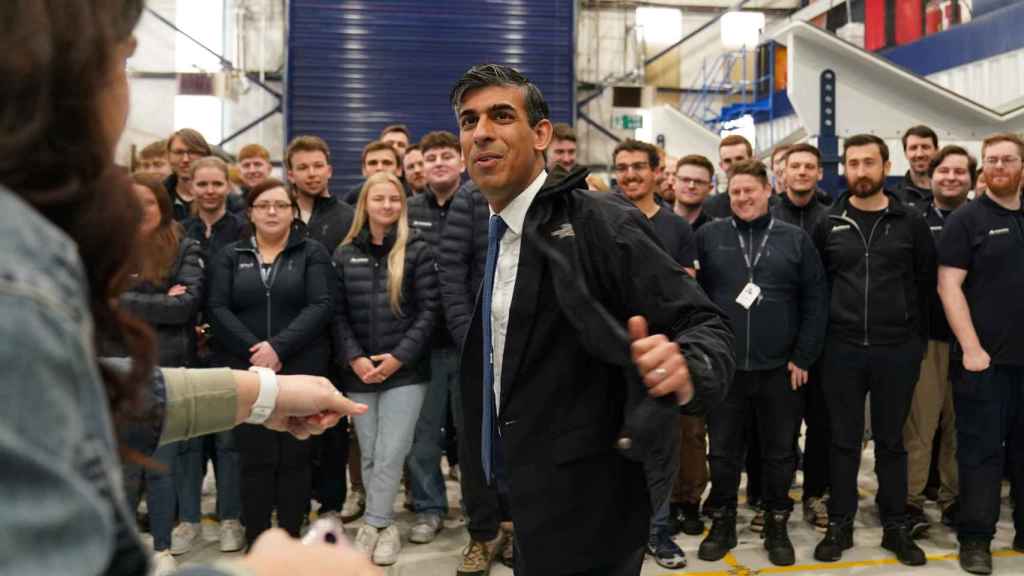In the first general election in the United Kingdom after the Brexit, promises to reduce immigration have united the candidates fighting to become the new occupant of 10 Downing Street. The plans for stop the arrival of illegal boats From France they occupy a fundamental place in the political manifestos of both the current conservative prime minister Rishi Sunak as the Labour leader and opposition leader Sir Keir Starmer.
Also the far-right Nigel Farage, politically resurrected for the occasion, has declared that these general elections “It should be an immigration election.” The only one who breaks away from this trend is Sir Ed Davey, the liberal democrat candidatewhich is committed to restoring the freedom of movement agreement with continental Europe that was lost when the country left the EU.
Less than a week before the elections, 40% of British voters points to immigration as one of the country’s main challenges, second only to economic and health policies. The percentage doubles the figures for 2019, according to YouGov. The sentiment responds to the increase in immigration in recent years. In 2022, the number of net migrants reached 764,000, according to the National Statistics Office. The figure was reduced to 685,000 in 2023but remains well above the 184,000 of 2019, the year of the last British general election.
“Stop the boats”
“We are an island, why can’t we just close our borders?” That was the question put to Sunak and Starmer during the last debate. Even though the number of refugees has increased the most in recent years from Ukraine and Hong Kongimmigration discussions in the election campaign have focused on how to reduce the numbers of asylum seekers crossing the English Channel from France in small boats, which in 2022 rose to almost 46,000.
In an effort to stop the influx of these refugees, the Conservative Party adopted the slogan Stop the boats (“Stop the boats”), originating in Australian politics. The impact of this message was such that today it occupies a prominent place in the promises of almost all candidates. Statements such as those of Farage, who has advocated the need for “recover the country” of the “invasion” of foreigners have allowed their far-right party Reform UK draws level with Tories in some polls.
Sunak, meanwhile, has focused on the reduction in the number of ships crossing the English Channel in recent months and has promised to continue with the tough policy. Meanwhile, Starmer has focused the conversation on the need for process the long list of pending asylum applications (more than 118,000 in March) and pursue illegal groups that manage migration routes. “We have to protect our borders,” he said in the debate.
Destination: Rwanda
In June 2022, 100 people held at Gatwick detention centre received a letter informing them that they would be transported to Rwanda as part of the new British migration policy. Of these, only seven boarded the first plane, which never reached its destination. An hour and a half before takeoff, the European Court of Human Rights halted the deportations and the British courts soon upheld the decision, as the plan contained too many uncertainties about the safety of deportees on Rwandan territory.
Reform UK party leader Nigel Farage,
Reuters
Faced with polls predicting the end of 14 years of Conservative rule, Sunak has made the Rwanda plan, a flagship policy during his brief mandate, a key plank of his election campaign. In April, Parliament approved the law that allows immigrants to be transferred to the Central African country and process their asylum applications there. In this way, Sunak received the green light to go back on his promise to restart flights to Rwanda if he manages to renew his mandate. “We need a deterrent effect,” said the premier“We have to make it crystal clear that if (migrants) come to our country illegally, they will not be allowed to stay.”
The electorate is divided over its support for this policy and its high cost, which would amount to about 600 million pounds for the deportation of 300 refugees, according to estimates by the National Audit Office.
Employment, main concern
When it comes to legal immigration, the UK has mixed views. In a country facing a difficult economic situationpoliticians like Farage have used the resulting discontent to mobilize part of the electorate against immigration, both legal and illegal, identifying the arrival of foreigners as the cause of the widespread lack of access to health and housing. “Britain is broken and the population explosion is the reason,” Farage said in an interview with AP. His party has promised to accept “zero” illegal immigrants into the country or raise taxes on companies to hire foreign workers, ignoring those who point out the need to accept migrants to fill jobs.
Although most polls show voters’ concern about control the arrival of foreignersonly 37% of Britons believe immigration has a negative impact on the economy, not far from the 37% who believe it is positive, according to YouGov. The Confederation of British Industry has also identified the lack of workers as one of the biggest challenges facing the country.

Sunak visits a maritime technology centre at a shipyard in Northern Ireland on Friday.
At the moment, One in every four of workers in the British hospitality, transport and telecommunications sectors were born in a foreign countryaccording to Oxford University. The Liberal Democrats have been the only major British party to focus on this issue and to demonstrate a favourable attitude towards immigration, proposing a system that “treats everyone with respect”.
Sunak himself is of Indian descent and, despite his anti-immigration stance, his family history has been a key tool in his election campaign, which sought to enable him to connect with voters on a personal level. “My grandparents immigrated to this country with very little”he recalled last Wednesday. “Two generations later, I have the enormous privilege of standing here as your Prime Minister.”




![[Img #74675]](https://thelatestnews.world/wp-content/uploads/2024/12/They-discover-a-new-class-of-X-ray-sources-in-the-150x150.jpg)







Add Comment